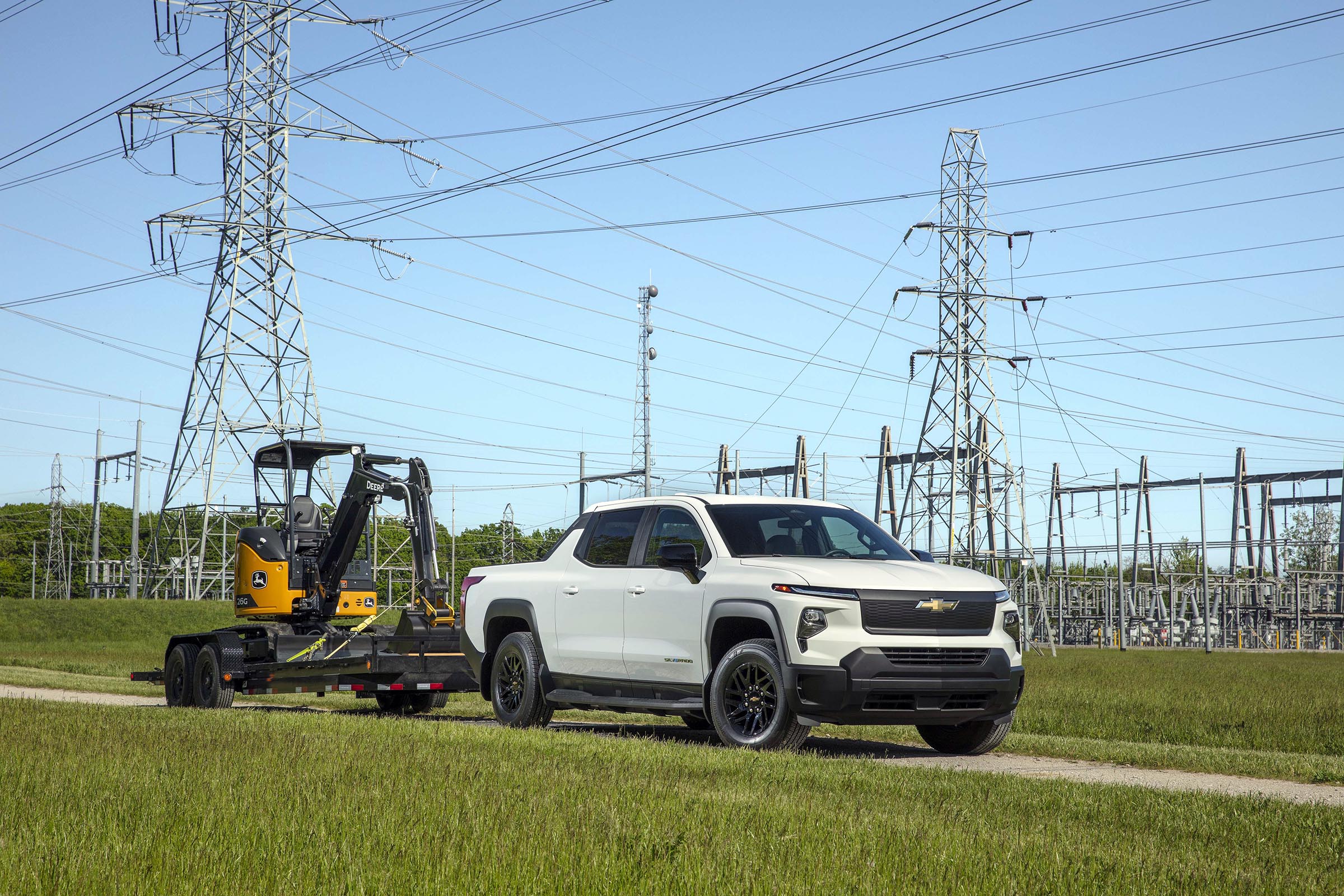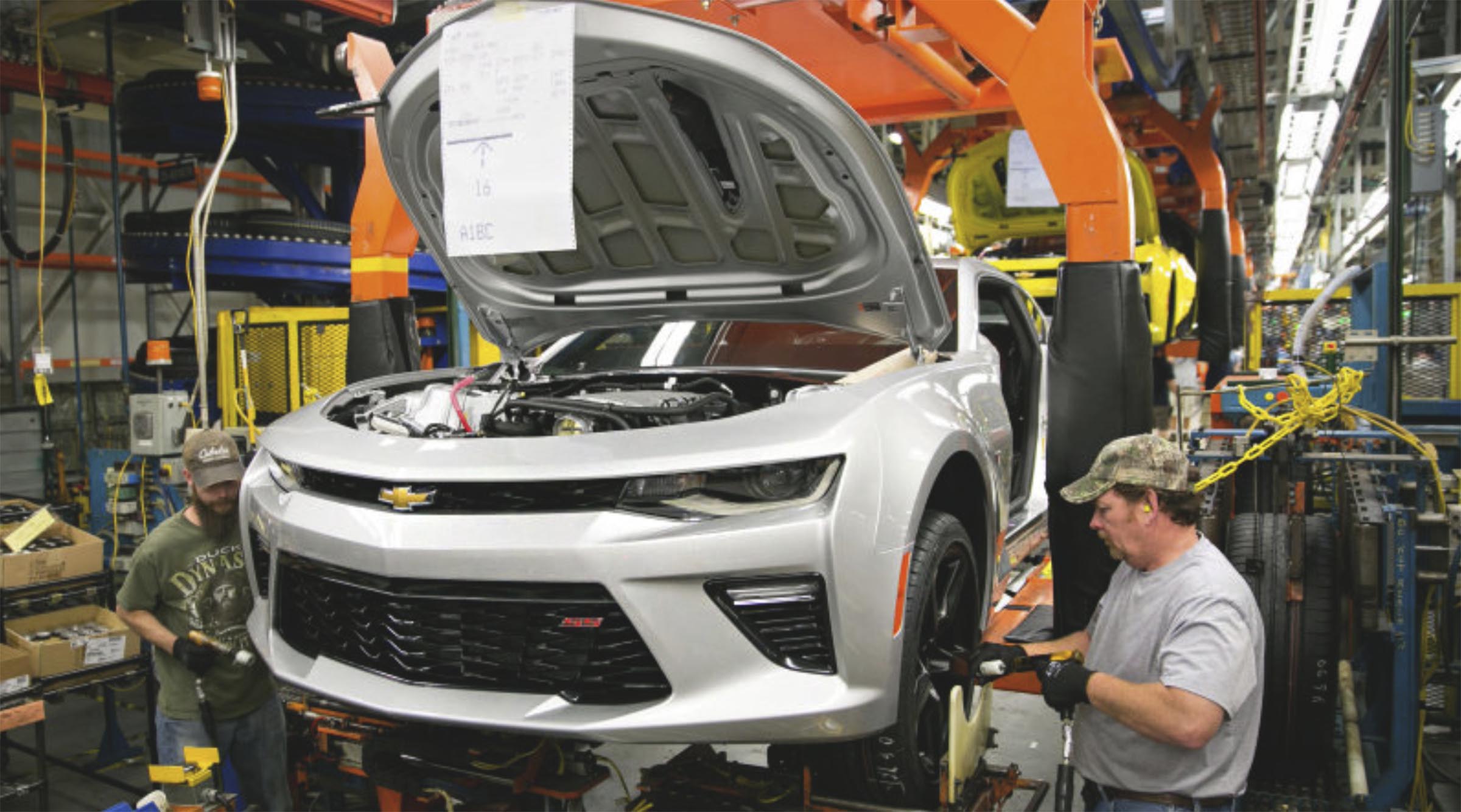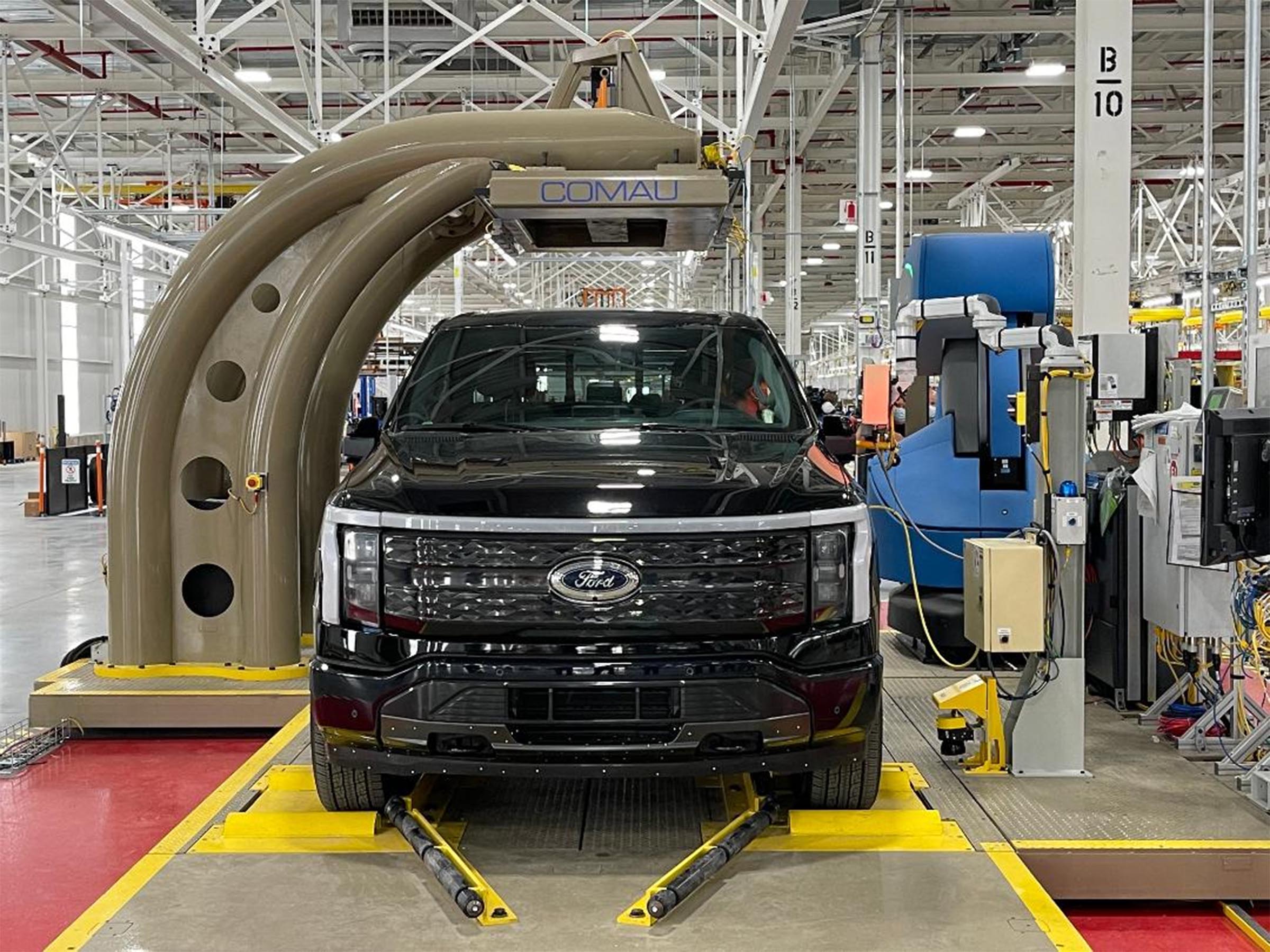General Motors will lay off more than 1,300 hourly workers at two Michigan plants, the automaker said. The announcement follows a series of other job cuts as the industry comes to the end of a challenging year. Most of the GM workers are employed at a suburban Detroit plant undergoing major renovation for the launch for future EVs.
![2023-Chevrolet-Bolt-driving[1]](https://headlight.news/wp-content/uploads/2023/09/2023-Chevrolet-Bolt-driving1.jpg)
Chevrolet is ending the run for the original Chevrolet Bolt EV – though GM CEO Mary Barra said a new version is under development.
The announcement comes just days after Stellantis filed requisite government paperwork indicating it may let go of as many as 3,800 hourly employees at two of its Midwest Jeep plants. Additional cuts may be in the works at Ford, Volkswagen and other automakers, as well as parts manufacturers such as German-based Continental. The year began with numerous cuts across the industry, including start-up Rivian.
GM delays EV plant
Of the more than 1,300 layoffs announced by GM in a WARN, or Worker Adjustment and Retraining Notification, 945 are set to come at the automaker’s Orion Assembly Plant. The facility, about an hour north of Detroit, currently produces the Chevrolet Bolt EV which has been scheduled to end its run this month.

The Orion plant will build both the Chevrolet Silverado EV, (shown here), and the GMC Sierra EV – but its reopening has been delayed until late 2025.
The factory originally was set to reopen next year after a $4 billion renovation to allow it to produce new battery-electric models such as the Chevrolet Silverado EV and the GMC Sierra EV.
In October, however, the automaker said it would delay the reopening until late 2025 “to better manage capital investment while aligning with evolving EV demand.” The delay, GM noted, will allow it to make additional upgrades to its manufacturing system to “increase the profitability of our products.”
End of the run for Camaro
The second set of GM layoffs impact about 350 workers at the Lansing Grand River Plant near the Michigan capital. Due to increasingly sluggish sales, the Chevrolet Camaro will be pulled from production.
The factory will continue to assemble two other models, however, the Cadillac CT4 and CT5 sedans. And GM said it will seek to place workers impacted by the Lansing cuts at other factories. It did not indicate whether it will seek to relocate workers from the Orion Assembly Plant, though that’s a common move under the automaker’s union contract.
More cuts coming
Stellantis also issued a WARN notice this month, saying it will cut as many as 3,700 jobs at plants in Michigan and Ohio due to slowing sales at its Jeep brand. Final numbers have not been determined and may fall short of that, according to a Stellantis spokesperson.
But, as of now, it may trim up to 2,455 jobs in Michigan by eliminating the third shift at its Mack Avenue Assembly Plant in Detroit, and another 1,225 jobs at a factory in Toledo, Ohio. The layoffs will be effective as early as February 5.
For its part, Ford announced this week that it will eliminate one of two shifts at its Rouge Electric Vehicle Center in the Detroit suburb of Dearborn. That reflects weakening sales for the F-150 Lightning all-electric pickup. Ford had made major expansions at the facility based on early demand, but now will trim output from 3,200 to 1,600 a week. Ford did not say if – or how many – workers might be impacted.
More Job News
- Cruise cuts 24% of staff, ousts execs linked to near-fatal crash
- Stellantis could cut up to 3,700 jobs
Watching uncertain market conditions
“We will continue to match Lightning production to customer demand,” said a spokesperson.
Automakers, in general, are watching EV sales hoping to get a better sense of where they’re going as we approach 2024. As of the beginning of this year, demand had increased by more than 800% compared to 2019. But it has flattened out at around 8.5% of the U.S. retail market in recent months, according to Tyson Jominy, head of data and analytics for J.D. Power.
Paul Jacobson, GM’s chief financial officer, said he expects EV sales to continue growing, but at a “choppy” pace.
It’s the economy
Industry planners have taken a cautious approach all year, reflecting ongoing uncertainty about the U.S. economy. The coming year could add further concerns in the face of a heated presidential election, analysts have warned.
That said, the automotive market has continued rebounding from the hits it took from COVID and extended shortages of semiconductors, both severely limiting production.
But the migration to EVs also is factoring in. High prices are clearly contributing to the slowdown in growth, Jominy told Headlight.News, and automakers are struggling to find ways to trim production costs. That’s complicated by the 25% raises Detroit’s Big Three agreed to in order to settle a six-week strike by the United Auto Workers Union. A number of foreign-owned plants have announced similar raises in recent weeks.
VW, which raised U.S. wages, is among the automakers most heavily invested in EVs and it has indicated plans to trim global labor costs by 20%. Meanwhile, suppliers who are being pressed for price cuts, are also looking for ways to trim costs. Continental, one of the largest, has indicated thousands of job cuts will be coming.





0 Comments